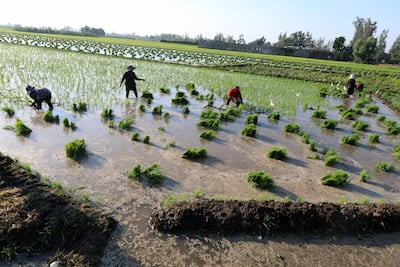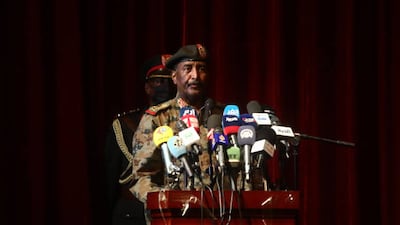Sudan said on Monday it was recalling its ambassador in Addis Ababa to protest against what it says was the execution by Ethiopian forces of seven Sudanese soldiers and a civilian who were captured last week.
The Addis Ababa government said the "tragic incident" took place on June 22 when an incursion of Ethiopian territory by a Sudanese unit supported by rebels from the secessionist Tigray People's Liberation Front, or TPLF.
"The Ethiopian government regrets the loss of life as a result of a skirmish between the Sudanese army and a local militia of which an investigation would be carried out soon," said the government statement.
It did not say how many Sudanese were killed in the engagement or whether the unidentified Ethiopian militia suffered any casualties.
"The government of Ethiopia categorically rejects the misrepresentation of these facts by the Sudanese defense forces which unjustly puts the blame on Ethiopia," said the statement.
In Khartoum, the Sudanese capital, a Foreign Ministry statement said it has summoned the Ethiopian ambassador in Khartoum in protest. It said the soldiers and the civilian were "kidnapped" on Sudanese soil last Wednesday and taken to Ethiopia. It gave no further details on the circumstances of their capture.
"The Foreign Ministry condemns this inhumane conduct and would like to remind everyone that Sudan hosts more than 2 million Ethiopians who are treated with dignity and share with the Sudanese the country's resources and livelihood in a climate of generosity and tolerance," the department said.
Sudan, it said, intends to file a complaint against Ethiopia to the UN Security Council and relevant regional and international organisations.
Sudan's military ruler Gen Abdel Fattah Al Burhan, meanwhile, flew on Monday to his country’s eastern region close to Ethiopia’s border only hours after the army first broke the news on the executions.
Gen Al Burhan, who seized power in Sudan eight months ago, flew to the Al Fashaqa region accompanied by senior army officers, military officials said. No reason for the visit was given by the military but it appeared to be linked to the tension with Ethiopia over the executions.
“In an act that violates all laws and customs of war and international humanitarian law, the Ethiopian army executed seven Sudanese soldiers and a citizen who were their captives,” the Sudanese armed forces said in a statement late on Sunday.
“This treacherous act will not pass without a response.”
Relations between Sudan and Ethiopia have been fraught in recent years, mostly over the contested border region of Fashaqa, a fertile farming strip long settled by Ethiopian farmers protected by pro-government militias.
The area is claimed by Sudan.

The eastern territories of Sudan, which border Ethiopia's Tigray region, have been the site of deadly clashes between the Sudanese and the Ethiopian sides in the past 18 months.
They coincided with the outbreak of fighting in Tigray in November 2020 between TPLF rebels and the government.
The conflict has sent tens of thousands of refugees from Tigray fleeing into Sudan.
The border dispute is part of wider tensions between the two countries, which include differences over Ethiopia's hydroelectric dam on the Blue Nile about 20 kilometres from the Sudanese border.
Sudan and Egypt oppose the project and have been pushing for a legally-binding agreement on the filling and operation of the dam. Ethiopia said guidelines should be enough.
The three nations’ last round of talks on the dam broke down in April last year.

This month, Ethiopia said it was ready for another round of talks. Egypt and Sudan have said nothing in public about the prospect of resuming talks.
Sudan said it needs real-time data on the filling and operation of the Grand Ethiopian Renaissance Dam to safeguard against destructive flooding and ensure its own hydroelectric dams on the Blue Nile work smoothly.
Egypt, which depends on the Nile for nearly all of its fresh water, said any reduction in the volume of water reaching it would jeopardise hundreds of thousands of farming jobs and disrupt the delicate food balance for its 103 million people.


